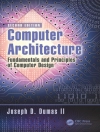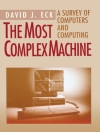The book offers a provocative review of thinking about privacy and identity in the years encompassing and disrupted by the two world wars of the first half of the twentieth century – focusing (in particular) on the socio-technological transformations associated with modernism. It argues that, with many of the most interesting modern thinkers of the period dead or marginalised (or both) by 1948, their ideas about how rights such as privacy should develop to accommodate the exigencies of modern life failed to find much of a voice in the drafting of the Universal Declaration of Human Rights. Yet they anticipated in surprising ways some of our ‘new’ ways of thinking in more recent times. After a brief introduction, the chapters are framed in terms of case studies on the right to privacy, the right to data protection and the right to be forgotten, each finishing with a consideration of how these rights require further rethinking in the digital century.
Tabla de materias
Chapter 1. Introduction.- Chapter 2. Reimagining Privacy in the Face of Modernism.- Chapter 3. Asking for Data Rights in The Castle.- Chapter 4. Resisting Cinematographic Mechanism.- Chapter 5. Reappraisal.
Sobre el autor
Megan Richardson is a Professor in the Melbourne Law School at the University of Melbourne and author of The Right to Privacy: Origins and Influence of a Nineteenth-Century Idea (Cambridge University Press, 2017) and Advanced Introduction to Privacy Law (Edward Elgar, 2020).












